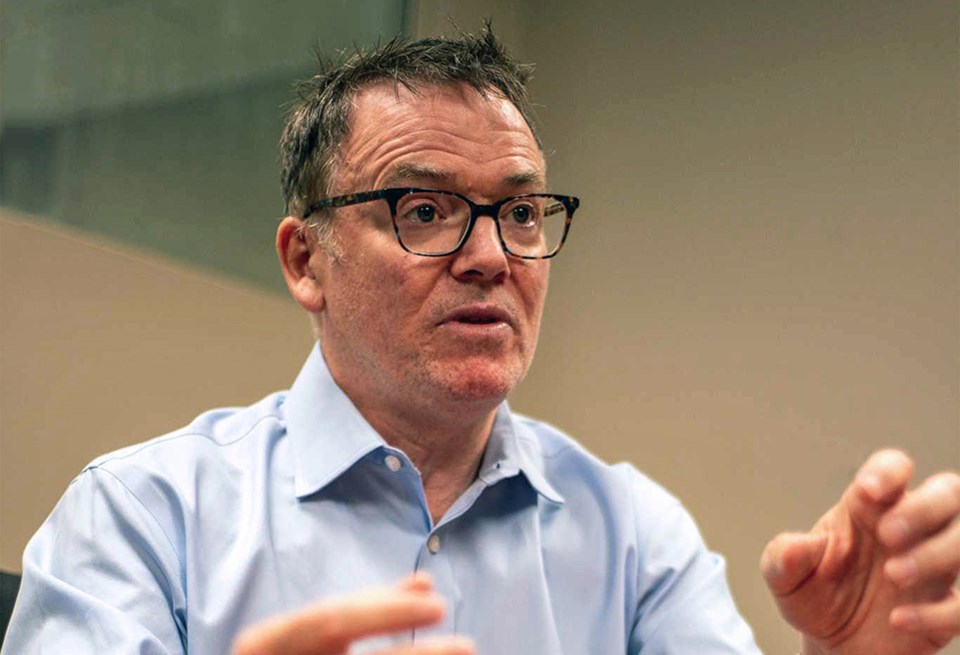If in politics a week is a long time, these last few months are an epoch unto themselves.
Not terribly long ago we could conclude that the David Eby NDP government’s poll advantage appeared insurmountable. Sure, a sizeable number of British Columbians were telling pollsters that they’d like change, but to what?
Few considered the BC Conservatives under John Rustad a readied organization. Fewer still thought the BC United, the former BC Liberals led by Kevin Falcon, was the answer.
The numbers were predicting another NDP win, a rout of the BC United, with Eby even capitalizing on the Conservatives’ presence on the ballot to split the anti-NDP vote and bestow extra seats in his re-election.
But more recent public opinion research is suggesting a significant Conservative surge, even a lead over the NDP, and at the moment such that neither the NDP nor the Conservatives would salt away a majority in October.
In that instance, Falcon could find himself in a more enviable position than anyone could have until recently anticipated: a repeat of a 2017 scenario in which a third-place party with few seats determines which of the bigger winners gets to form government. Then it was the Greens under Andrew Weaver; in October, it could be Falcon as kingmaker, perhaps deal-making with the person he pushed out of his own party only two years earlier.
Before anyone locks in on this as a likelihood, though, there are many coulds, mights and possiblies to consider.
First, the election isn’t tomorrow, isn’t next month, isn’t even next season. That generous amount of time – epochs, so to speak – will be used to take some steps back on unpopular policy.
Take, for example, Eby’s frenetic end to his pilot project to decriminalize the public use of drugs. When it became evident that his MLAs were losing interest in defending an experiment that the public thought was a careless affront to personal security, he prompted Ottawa to recriminalize and pull the plug on his project.
One wonders, for instance, if there will be more work to do to contend with accusations of antisemitism levelled at his party by former finance minister Selina Robinson, given the challenges all political leaders are facing in this complex climate of the war in Gaza.
Mind you, not all issues are feasible do-overs: the public seems to have concluded that affordability, health care and housing are what they are under this government. These are the sources of calls for change. Problem for Eby’s NDP is, these are not addressable in anything but the long term.
But just as there might be time to heal some open wounds, there might also be time for greater clarity to emerge on the rapidly rising Conservatives.
Pollsters acknowledge that Rustad isn’t as well known as his party’s name – roughly one-quarter don’t know who he is – and that there lingers a very useful public perception (for him, anyway) that the provincial Conservatives are the branch plant of Pierre Poilievre’s federal party. That myth ought not to last in the thrust of a campaign, although it will be fascinating to see how Eby will want the perception to stick and Falcon will want to peel it away.
A large issue for Rustad is the tangible challenge of mounting an effective operation in short order – how quickly his party can raise money, build an apparatus to organize in ridings, nominate a team, identify its vote and get it to the polls on election day.
Arguably the most significant issue to settle for all parties remains the question of what people mean when they say they want change. It’s a very loaded word. A change in policy? A change in tone? In responsiveness? In leadership? In government?
At the federal level, it’s becoming easier to see what change might look like if the Liberals were displaced. But at the provincial level, Rustad still has to show what change under his party would represent; no matter today’s polls, it feels as if that’s pivotal to the shape of the next provincial government.
Remember, though, that many governments have faced these same calls for change before – think Gordon Campbell in 2008, Stephen Harper in 2011 – and gone on to win solid majorities.
Rustad has an opening all of a sudden, but can he make enough British Columbians believe the change they want can be produced by him?
Kirk LaPointe is a Glacier Media columnist with an extensive background in journalism.




